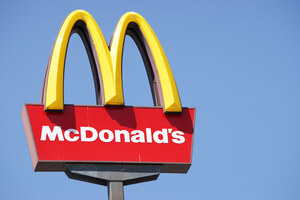
Background of the Case
On February 21, 2017, Russell experienced a terrifying altercation. She was assaulted through the drive-through window by an employee, identified as Consuela Wilson, who then proceeded to exit the building and physically attack her. This aggressive encounter resulted in Russell spraining her ankle, which later required two surgical operations. The conflict reportedly stemmed from a personal dispute, as Wilson believed Russell's husband was the father of her child.
Following the incident, Russell took immediate steps to address the issue legally and personally. She notified the local McDonald’s and also contacted a McDonald’s complaint hotline. Records later revealed that the employee involved had been terminated several days prior to the assault. Russell eventually escalated the matter by filing a complaint in the Small Claims Division of the Euclid Municipal Court, seeking compensation for her injuries amounting to $6,000.
The Court Proceedings and Judgment
The legal process unfolded with Russell serving the summons and complaint by certified mail to the McDonald's location where the incident occurred. The service was addressed to the owner of the franchise, Herbert Washington, under the corporate banner of H.L.W. Fast Track, Inc. Despite the summons being signed for at the McDonald's address, no representative from the company attended the hearing. Consequently, the magistrate issued a default judgment in favor of Russell, granting her the $6,000 she sought.
This judicial decision underscored the critical importance of businesses attentively managing legal correspondences sent to their places of operation. The failure of McDonald’s local management to respond to the court summons, despite evident acknowledgment of its receipt, ultimately led to the default judgment.
McDonald’s Response and Legal Strategy
In response to the unfavorable judgment, McDonald’s filed a Civ.R. 60(B) motion to set aside the judgment. They argued that they were not properly served and claimed that the mishandling of the summons and complaint constituted excusable neglect. Supporting their position, an affidavit from Thomas Micco, the controller of H.L.W. Fast Track, Inc., stated that none of the corporate offices nor the statutory agent received the legal documents. Micco also highlighted a lack of awareness of the lawsuit until a manager at the Euclid McDonald’s sent a photo of the judgment to Washington, long after the court's decision.
This motion brought to light the internal procedural failures within McDonald’s operational structure, particularly regarding the handling of critical legal documents. The court's scrutiny of these claims was rigorous, focusing on whether the service was indeed reasonably calculated to notify the corporation of the lawsuit and whether the claimed excusable neglect was justified under the legal standards.
Analysis of Legal Principles Involved
The legal crux of McDonald’s appeal lay in challenging the adequacy of the service of process and arguing for excusable neglect. Service of process, a fundamental aspect of legal proceedings, ensures that a party is properly notified and given a chance to respond. In this case, the service was executed at McDonald’s business premises, a standard practice for reaching corporations at their operational bases. The court found this method to be reasonably calculated to inform McDonald’s of the lawsuit, particularly given the incident occurred at that location and the initial complaint had been registered through McDonald's own channels.
Moreover, the concept of excusable neglect involves a failure that is deemed justifiable and out of ordinary carelessness or oversight that could not have been anticipated or avoided. The court examined McDonald’s internal mechanisms for handling legal documents and noted a significant oversight in not having a structured process to escalate such critical communications to the appropriate corporate or legal departments. This lack of procedure showed a disconnect within the organization rather than an excusable oversight, leading to the failure to respond to the legal action timely.
Court's Decision on Appeal
Upon reviewing the details and circumstances of the case, the appellate court upheld the trial court's decision. It rejected McDonald's claims of improper service and found no substantial grounds for excusable neglect. The court emphasized that merely being unaware of a lawsuit due to internal communication failures does not constitute excusable neglect. This stance reaffirms the judicial expectation that businesses, regardless of their size, maintain diligent processes for handling legal matters, emphasizing that neglect due to internal mismanagement is not typically excusable in the eyes of the law.
Implications for Businesses
This judgment serves as a crucial reminder for businesses about the importance of developing and adhering to effective procedures for managing legal correspondences. The failure to do so can lead to significant financial and reputational damages, as evidenced by McDonald’s inability to overturn the judgment. Companies must ensure that all employees, especially those in managerial or supervisory roles at operational levels, are aware of the importance of legal documents and the procedures for handling them. Establishing clear channels for escalating legal matters to the appropriate departments can safeguard businesses against the risk of default judgments.
Conclusion
READ MORE EMPLOYMENT LEGAL NEWS
This case is not just a legal anecdote but a cautionary tale highlighting the intersection of operational management and legal liability, reminding businesses of the perpetual need to balance both effectively.
